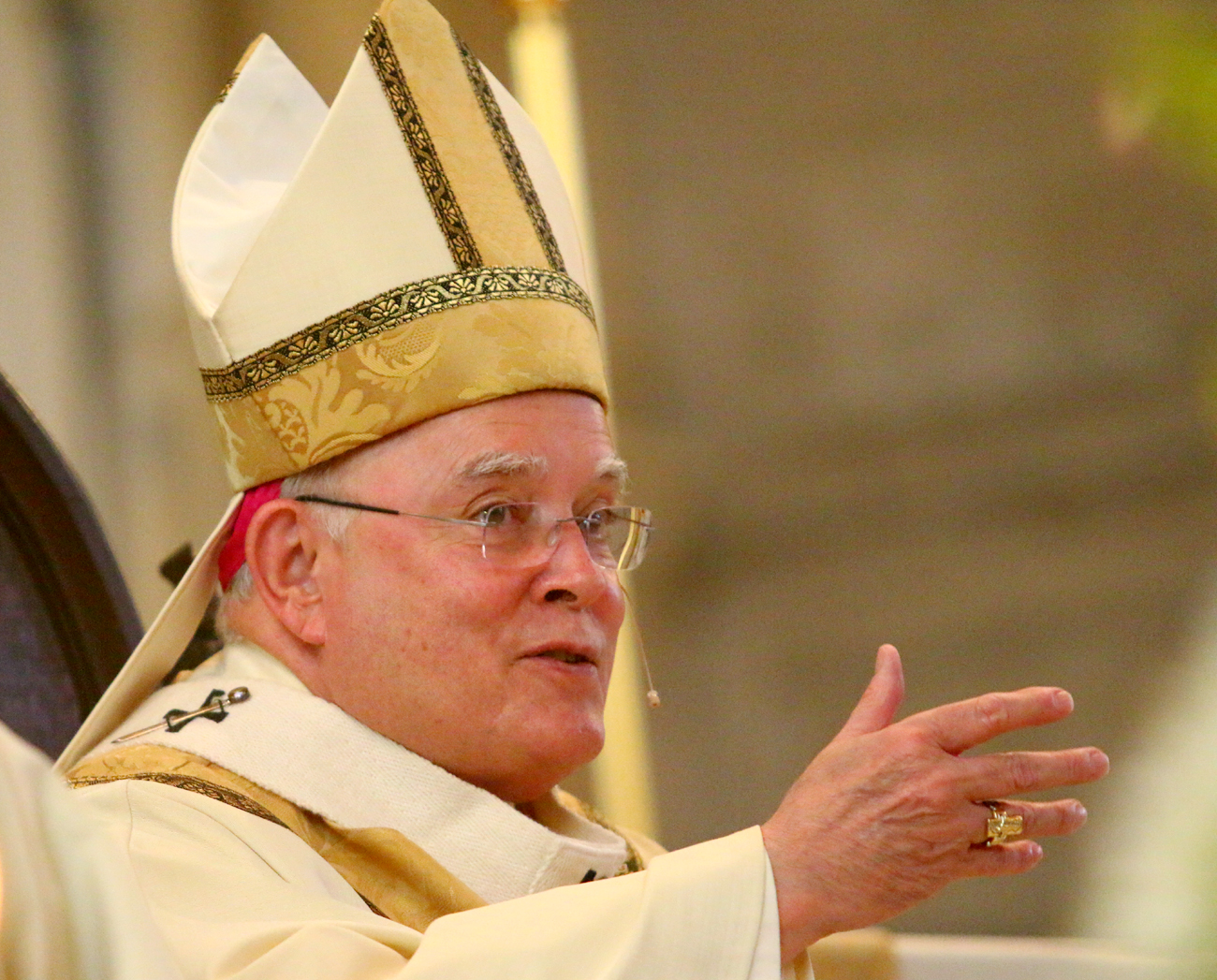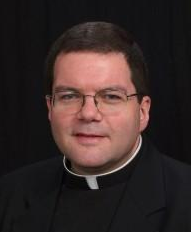
Archbishop Charles Chaput preaches a homily at a May 2019 ordination Mass for permanent deacons in the Archdiocese of Philadelphia. Having marked his 75th birthday on Sept. 26, the Archbishop has submitted his resignation in accordance with canon law. (Sarah Webb)
Archbishop Charles Chaput celebrated his 75th birthday on Sept. 26 — and he’s still the shepherd of the Archdiocese of Philadelphia.
According to the Catholic Church’s Code of Canon Law, diocesan bishops who have reached the age of 75 are “requested to offer” their resignations to the pope.
But that doesn’t signal an automatic or even immediate retirement, said Msgr. Michael Magee, chair of systematic theology at St. Charles Borromeo Seminary in Wynnewood, since a superior can “choose to accept the resignation or not.”
[hotblock]
Msgr. Magee noted that the resignation requirement is a recent one in the history of the Catholic Church, having emerged during the Second Vatican Council.
“There was a recognition that life spans had increased due in part to more advanced medical technology,” said Msgr. Magee. “People were beginning to routinely reach ages where they would still be able to go on living, but perhaps not be strong enough to carry out their jobs in full.”
The council’s 1965 decree on the pastoral office of bishops, Christus Dominus, did not specify a mandatory retirement age, but “earnestly requested” prelates to offer their resignation if “the increasing burden of age or some other serious reason” made them “less capable of fulfilling their duties” (Christus Dominus, 21).
In 1983, the age requirement was added to canon law, said Msgr. Magee.
Retirements don’t leave the Vatican scrambling for successors, he added, since the discernment process for new bishops is an ongoing one.
Archbishops and bishops regularly compile lists of priests whom they believe would be worthwhile candidates for bishops. Such lists are then sent to the apostolic nuncio, the papal ambassador who represents the Holy See in a given country or international institution. Archbishop Christophe Pierre serves as the apostolic nuncio to the United States, having been appointed by Pope Francis in 2016.
When a vacancy arises in a diocese, said Msgr. Magee, the nuncio “looks through all of the information he has received, and makes extensive and very confidential inquiries” regarding possible candidates.

Msgr. Michael Magee, chair of systematic theology at St. Charles Borromeo Seminary in Wynnewood, says that the naming of Archbishop Chaput’s successor is a process of both spiritual and natural dimensions. (Photo courtesy of St. Charles Borromeo Seminary)
On the basis of such research, the nuncio prepares a list of candidates (usually three), and then brings it to the Vatican’s Congregation for Bishops for discussion.
The congregation, in turn, makes its recommendations to the pope, who — though “not totally bound by that process,” said Msgr. Magee — considers the candidates and makes a final decision.
Although “the church does not operate on signature drives or public opinion” in appointing bishops, the laity — and all the faithful — need not feel excluded from the appointment process, said Msgr. Magee.
“That’s why the nuncio is in each country,” he said. “And when people have a strong, well-discerned sense of what they feel is needed in a given place, they have every right to make their feelings known to the nuncio.”
Of course, social media rants and angry “letters to the editor” tend to receive less thoughtful consideration, he cautioned.
“The tone makes a difference,” said Msgr. Magee. “If it’s written in a spirit of hostility, it’s not very helpful to the process.”
But “when someone writes in a serene hand, with right values in mind, a willingness to be taught by Christ and a true love for his church,” such communications are reflected upon and incorporated into the discernment process, he said.
Although it’s tempting to think that the sheer volume of such letters discounts their value, Msgr. Magee knows firsthand that writing to those in ecclesiastical authority is far from futile.
“As someone who has worked in the Vatican, I can tell you that those letters, which we receive from people all over the world, do make a difference,” he said. “It’s impossible to respond to every letter, but when we receive a number of letters expressing a certain concern, we do take note.”
[hotblock2]
That certainly differs from the process used to name successors in the corporate world, where leadership appointments can affect thousands of livelihoods, he pointed out.
“I worked in a bank before I entered the seminary, and I don’t remember any effort by the top corporate management to find out what people on the lowest rungs of the ladder thought about naming executives,” Msgr. Magee said.
At the same time, the wisdom required for appointing a bishop transcends common business sense, since the church is a supernatural, as well as human, institution.
While Archbishop Chaput’s successor “will very likely be an experienced bishop” so that he already has “the skills necessary for governing such a large local church,” the church by design seeks bishops who are more than simply “good corporate leaders, solid organizers or just nice persons,” said Msgr. Magee.
“We’re looking for someone who can give us Jesus Christ,” he said. “The bishop is the successor of the Apostles, to whom Jesus sent out saying, ‘Present me, both the teaching and the love that I give, to the world.’”
What people say they desire in a bishop ultimately speaks to how they perceive Christ himself, Msgr. Magee said.
“Sometimes people only want Jesus’ love, but not his truth about the human person, which is non-negotiable,” he said. “And yet everybody who knew Jesus saw an amazing love that drew them in, but also one that made incredible demands on them and called them to something higher.”
For that reason, said Msgr. Magee, one of the best ways the faithful can prepare for the appointment of a new bishop is through prayer, fasting and sacrifice, because “ultimately, this is a spiritual decision.”
PREVIOUS: What that mysterious word ‘church’ really means
NEXT: Respect Life Month kicks off Sunday at Cathedral



Share this story